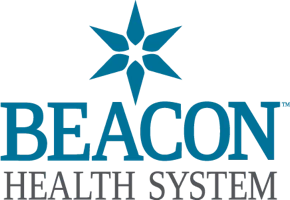In 2010, only 16% of hospitals used Electronic Health Records (EHRs) to manage patient medical records electronically; that number is now over 96%.
EHRs have caught on quickly because they make healthcare run more smoothly, providing clinicians with instant access to the data they need to make informed medical decisions. Epic Systems is the leading EHR solution among hospitals, physicians, and healthcare systems, followed by Oracle Cerner and MEDITECH.
Advanced EHRs offer comprehensive interfaces, secure interdisciplinary communication, extensive patient history management, customizable clinical workflows, advanced analytics, and e-prescribing functionalities. All these robust features make today’s EHRs invaluable for healthcare providers dedicated to delivering superior patient care in today’s increasingly complex healthcare environment.
Your EHR paired with specialized RCM expertise: A power duo for complex claims
EHRs don’t just aid in clinical care; the best EHR systems include revenue cycle management (RCM) features such as insurance verification, claims management, coding assistance, and patient billing and collections.
While EHR systems excel in managing standard commercial claims, maximizing complex claim reimbursements is best achieved by working in tandem with a specialty RCM expert to fill critical gaps and unlock full revenue capture potential.
EnableComp has processed more than 60 million complex claims, including Veterans Affairs (VA), workers’ compensation, motor vehicle accidents, and out-of-state Medicaid claims. We see firsthand where EHR workflows require augmented capabilities to achieve optimal reimbursements for complex claims.
Here are just a few examples from our internal data when relying solely on an EHR leads to inferior outcomes:
- Workers’ compensation claims are sent to the incorrect carrier 60% of the time, resulting in delayed payment and increased administrative costs.
- 13% of denied VA claims are due to issues like timely filing, coding errors, authorizations, incorrect carriers, and eligibility problems.
- 20% of motor vehicle accident claims are misdirected to the wrong carrier.
- Approximately 25% to 33% of out-of-state Medicaid claims are never filed due to enrollment issues, leading to significant revenue losses.
How experts complement EHRs for complex claims success
While EHR systems excel in managing routine tasks, like registration, charging, and standard claims, they are not tailored to the complexities of specialty revenue cycle management.
Complex claims often involve multiple payers, intricate coding requirements, varying reimbursement rules, and higher denial rates. By their very nature, complex claims require specialized knowledge and persistent follow-up.
EnableComp partners with healthcare organizations to address four key areas where EHRs and specialized RCM experts need to work hand-in-hand: enhancing denials management, meeting detailed documentation requirements, providing access to deep industry knowledge, and ensuring compliance across diverse payer regulations.
Together, these complementary strengths create a robust approach to maximizing complex claim success.
1. Denials management
The detailed nature of complex claims makes them prone to denials or underpayments. Effective denial management requires a deep understanding of payer guidelines.
EHR systems typically provide basic denial management tools, but these are insufficient for the intricate processes needed to overturn denials for complex claims.
For example, EHR systems often lack multiple built-in fee schedules. An EHR system might include only the Medicare fee schedule, commonly used for many claims, leading to denials or underpayments when other fee schedules are required. Your specialty RCM partner can prevent common denial missteps from happening.
2. Documentation requirements
Complex claims often require detailed documentation that EHR systems are not equipped to handle efficiently. For example, VA claims and workers’ compensation claims have different documentation requirements for processing claims.
While many commercial claims need only prior authorization, complex claims may require sending medical records with each submission. EHR systems are typically not optimized for these varying requirements, adding another layer of difficulty to the process; this is when having a complex claims’ partner can make all the difference.
3. Lack of deep specialty RCM knowledge
Managing complex claims requires expertise that EHR systems may or may not be able to provide. Payer requirements and the regulations governing claims processing change frequently, but not necessarily uniformly across states.
For example, with out-of-state Medicaid, each state has its own regulations and enrollment requirements, and this variability requires in-depth knowledge. EHR systems do not always offer multistate support out of the box, which means providers must invest extra time and resources to build out these capabilities, provided such options are even offered.
Specialized RCM companies like EnableComp employ experts who are well-versed in the intricacies of complex claims and payer requirements across all 50 states, providing the necessary support to navigate these complexities effectively.
4. Compliance with multiple payers
Compliance challenges arise with different payer groups as each has unique rules and regulations. For instance, workers’ compensation claims require specific knowledge to avoid issues like authorization errors, missed filing deadlines, and inaccurate coding.
If a payer delays a workers’ comp claim, billing the patient can lead to significant financial burden and unnecessary stress on the patient. When you work with a complex claims’ expert, that delay doesn’t happen; this is just one more example where your EHR is supported by your complex claims partner.
Boosting complex claims outcomes with EHR and expert synergy
While complex claims may represent only a fraction of your organization’s overall revenue, these claims can add up and be worth millions in potential revenue.
To navigate the challenges of complex claims, healthcare providers need a robust EHR system, but they also need a partner who understands the nuances of specialty billing and revenue cycle management.
Here’s how partnering with a specialized RCM company like EnableComp can help:
- You benefit from ease of implementation and seamless integration with your EHR system. Our e360 RCM® platform is designed for effortless implementation and smooth integration with your organization’s existing EHR system.
- You gain access to decades of specialty RCM expertise. Our team of specialty RCM experts has decades of experience in complex claims management.
- You experience a proactive approach to denial management. Our proactive approach involves a thorough root-cause analysis to gain insight into why your claims are denied and help determine steps to prevent future denials.
- You acquire a partner that’s a true extension of your team. We’re more than a vendor – we are your “department down the hall.” We can help your revenue cycle team navigate all the challenges that come with complex claims and keep your team on track with strategic action plans, monthly reporting, regular business reviews, and day-to-day engagement.
Ready to learn more?
EHR systems are invaluable, but they’re not built to address every revenue cycle need. An experienced RCM partner will not only improve your bottom line, but they will capture 100% of your contractual and expected reimbursement for your complex claims. Contact us to learn more.





























